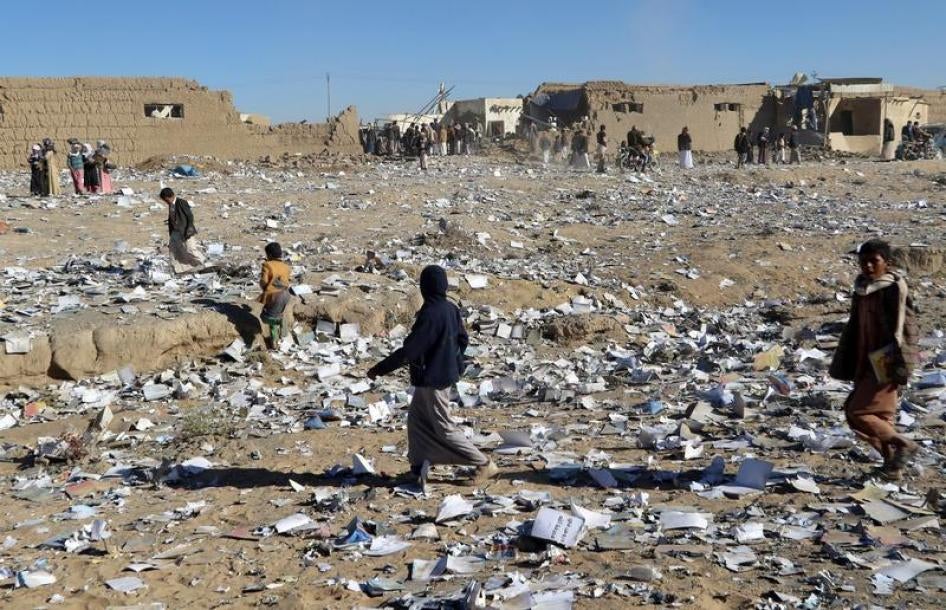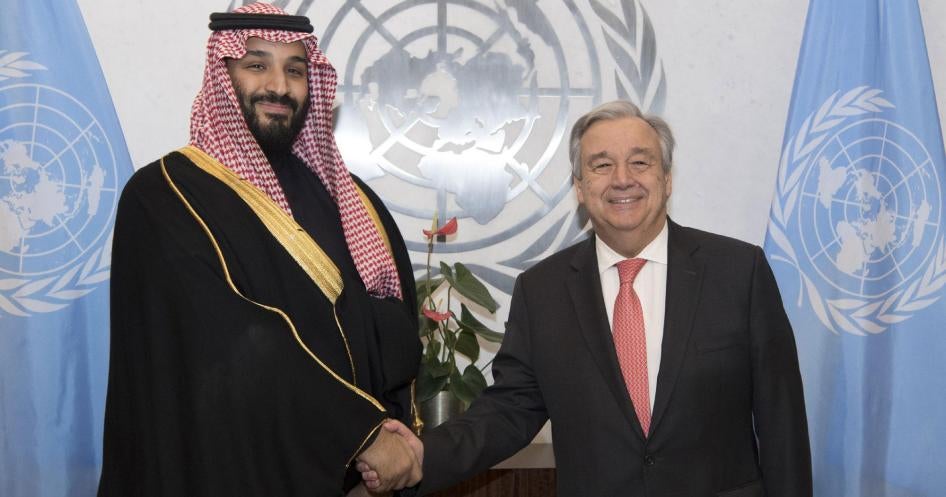Today, like many days, my cell phone was flooded with photos of children recently killed in Yemen by Saudi Arabia-led coalition airstrikes. But also today, United Nations Secretary-General António Guterres released his report only gently censuring the coalition for the Yemeni children it had killed and maimed in 2017.
Every year, the secretary-general releases his “List of Shame” report on violations against children during wartime. This year’s report rightly called out many of Yemen’s warring parties—the Houthis, Al-Qaeda in the Arabian Peninsula, pro-government militias and Security Belt forces. But, like last year, the coalition was treated differently. It’s on a special list for countries that put in place “measures to improve child protection.”
Yet, a UN expert panel on Yemen concluded that, in 2017, anything the Saudi-led coalition may have done to minimize child casualties remained “largely ineffective.”
The secretary-general’s report itself found the coalition responsible for killing or wounding 670 children in 2017, barely less than its 683 child victims of 2016. Secretary-General Guterres noted a “significant decrease” in attacks on schools and hospitals, while the same report found the coalition responsible for 19 attacks on schools and 5 on hospitals in 2017, compared to its 28 attacks on schools and 10 on hospitals in 2016.
Unless they’re being used for military purposes, schools and hospitals may never be attacked. The secretary-general should be seeking an end to the bombing of schools and hospitals, not attacks at a somewhat reduced pace.
The report even implies the coalition ended its blockade of Yemen. The Saudi-led coalition did no such thing. Rather, it lifted the appalling total closure on all Yemen’s entry points imposed in late 2017. But to this day the coalition is restricting the flow of food and medicine into parts of Yemen, where millions are on the brink of famine. It also keeps the country’s main airport closed, including to many sick and wounded, despite promises to open it to them.
Perhaps most disturbing, the report refers to the Saudi-led forces as the “coalition to restore legitimacy in Yemen” instead of the coalition “led by Saudi Arabia,” as was used last year. This year, the report only clearly references Saudi Arabia when discussing progress. Similarly, it lists Security Belt force violations, but the UAE, which funds, trains and directs these forces, is never mentioned.
The secretary-general’s report does a disservice to those pressing the Saudis and Emiratis to comply with their international legal obligations. It suggests, once again, that states with money and power can skirt UN scrutiny, regardless of how egregious their abuses.









